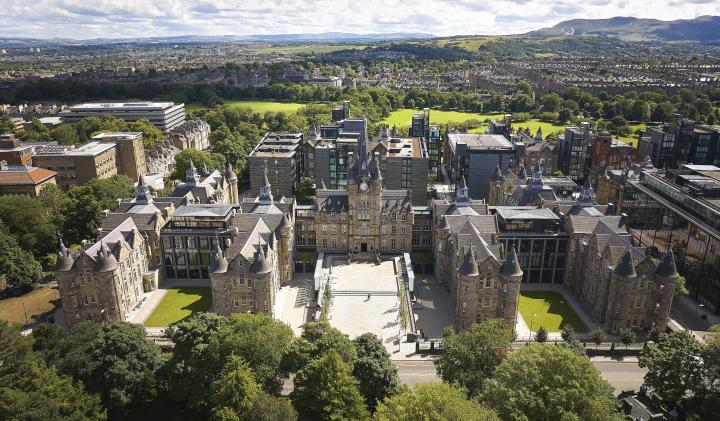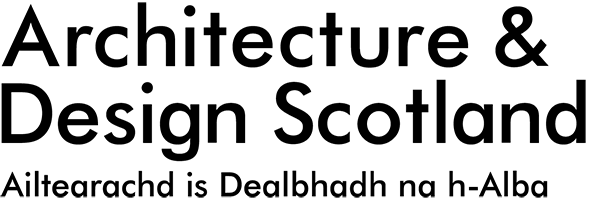The Recap: A weekly update from Architecture and Design Scotland

Welcome to the Recap - a short weekly update blog from Architecture and Design Scotland. This is based on our internal blog that is shared with staff and board members on Fridays. This blog combines weeks ending 25 October and 1 November.
Edinburgh Futures Institute (EFI) makes top global architecture listing
EFI has been named among the world’s most beautiful campuses as part of a prestigious international architecture competition.
The redevelopment of the category-A listed former hospital into the state-of-the-art Edinburgh Futures Institute has been recognised in the Prix Versailles’ World’s Most Beautiful Campuses List alongside five other recently-opened or renovated buildings across the world.
The listing has been unveiled by the internationally recognised series of awards and listings presented by the United Nations Educational, Scientific and Cultural Organization (UNESCO) to celebrate the best contemporary architecture and design projects across the world.
Following this listing, the University of Edinburgh will compete for three 2024 World Titles – Prix Versailles, Interior and Exterior – whose laureates will be announced at UNESCO Headquarters in December 2024.
Professor Sir Peter Mathieson Principal and Vice-Chancellor of the University of Edinburgh said:
It is a tremendous honour to have the Edinburgh Futures Institute recognised by Prix Versailles in this way. The care that has been taken to sympathetically restore the magnificent former hospital, coupled with the work to make it fit for generations of interdisciplinary teaching and research, makes it a project unlike any other that the University has previously undertaken. This is a building not just for our students and staff, but for the city and I am incredibly proud to live up to the inscription etched onto its wall: ‘Patet Omnibus’ meaning ‘Open to All’.
Placing the Standard Event
Our Director of Design Heather Claridge participated in a Scottish Futures Trust (SFT) event on the role of 'Place' in the Net Zero Public Sector Building Standard – a voluntary standard applicable across all new or major refurbishment construction projects.
Joining Heather on the panel was Louisa Macdonell (Scotland Director for Business in the Community (BITC) at the Just Transition Commission), Johanna Boyd (Chief Executive of Planning Aid Scotland), and Diarmaid Lawlor (Associate Director at SFT). Key discussion points included: how to engage the community in projects, how to design for reuse and prevention, and the need for leadership support.
The event also touched on circular economy considerations for rebuild versus renewal projects, and attendees heard from case studies about the new Monklands Hospital in Airdrie and Barlinnie Prison in Glasgow. The event was chaired by Stephen Vere, who leads SFT's Net Zero Buildings workstream.
'Place Standard with a Climate Lens' in Armadale
Our Senior Architect and Principal Design Officer Laura Hainey headed to Armadale in West Lothian to support a workshop on the 'Place Standard with a climate lens', in collaboration with West Lothian Council, Public Health Scotland, and The Dale Hub (who also hosted the event).
It was an activity-filled day, with participants taking part in planting (while discussing nature spaces), games (while discussing social interaction), mapping exercises (while discussing active travel), and air frying (while discussing housing and community).
The findings of the workshop will inform a baseline understanding of Armadale for our Learning Locally Co-designing Sustainable Learning Settings project, where we hope to work with a number of primary schools in the town to better understand how the Learning for Sustainability Policy can be delivered with the local place as a resource and learning setting.
Urban Retrofit Research Project
Our Chief Executive Jim MacDonald joined colleagues from across the UK for the launch of the research project ‘URBAN RETROFIT UK’ led by Glasgow University. Focusing on five cities – Glasgow, Cardiff, Sheffield, Bristol and Belfast – and with input from many more, the project will explore the challenges and opportunities presented by focusing development on existing, urban settlements. Is it more sustainable? Is it viable? Can it address inequality, health and other issues? These questions, and many more, will be examined over the next three years.
